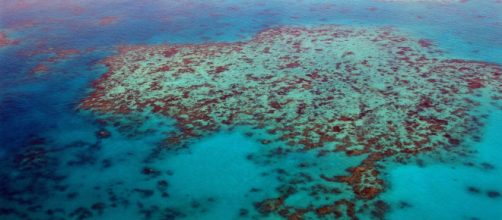The Great Barrier Reef in Australia is a UNESCO World Heritage site. Its corals are a major attraction for tourists, and they travel from distant places to enjoy being among them. However, global warming has robbed the corals of their sheen. Over the past year, the Australian government has intensified its efforts to recover them. UNESCO last month recommended that the Great Barrier Reef be included in the endangered list given the damage to the corals. This is the world's largest reef system, and it might lose the pride of place accorded to it if the decision is implemented.
Daily Mail UK reports that the Australian Institute of Marine Science (AIMS) explains that the corals were currently in a “recovery window” following a decade of heat stress and cyclones. This government agency has been monitoring the reef for 35 years.
Australia in talks with UNESCO officials on the subject
An official of AIMS said the harsh weather conditions gave fewer opportunities for the reef to recover. Teams surveyed 127 reef sites in 2021. They found hard coral cover had increased at many of the locations surveyed in the past two years. Great Barrier Reef is a 1,400 miles ecosystem.
Separate scientific research last October found the loss of half its corals since 1995. It was the result of ocean heatwaves and consequent mass bleaching of the corals.
Daily Mail UK adds that Australia is in dialogue with UNESCO to prevent downgrading the status of the World Heritage site. Its environment minister has gone to Paris to meet with the officials. UNESCO wants Australia to take urgent action against climate action.
Mechtild Roessler is the UNESCO director of the World Heritage Committee. She acknowledged the efforts of Australia and added: “our text in the draft decision ... is a proposal for putting the site on the list of world heritage in danger because of the threats which were identified.” The Great Barrier Reef became a World Heritage list in 1981. It generates billions of dollars in tourism revenue every year. In case of down gradation of its status, it could lose its tourist appeal.
UNESCO and the controversy over the status of the iconic site
According to the BBC, the government of Australia does not agree to a United Nations report. The report claims the country has not done enough to protect the Great Barrier Reef from Climate change. This has given rise to a dispute between UNESCO and Australia over the status of the iconic site.
The former feels the reef category should be “endangered” given the damage it has suffered. It also added that there was slippage on key targets to improve the quality of water. Environment minister Sussan Ley confirmed that her country would challenge the listing and said: "Clearly there were politics behind it; clearly those politics have subverted a proper process."
China chairs the UNESCO World Heritage Committee
The BBC mentions that the UNESCO World Heritage Committee is a 21-nation group.
China is the chair, but, of late, its diplomatic relationship with Australia is on shaky ground. Sussan Ley explains that climate change is a major threat to the reef ecosystems in the world.
Many World Heritage properties have to cope with these threats, and it is incorrect to single out Australia. The Great Barrier Reef is a symbol of "enormous scientific and intrinsic importance." In 2017, UNESCO had talked about its “in danger” status. However, some bleaching events over the past five years meant the widespread loss of coral. Scientists assign global warming from the burning of fossil fuels as the main reason.


